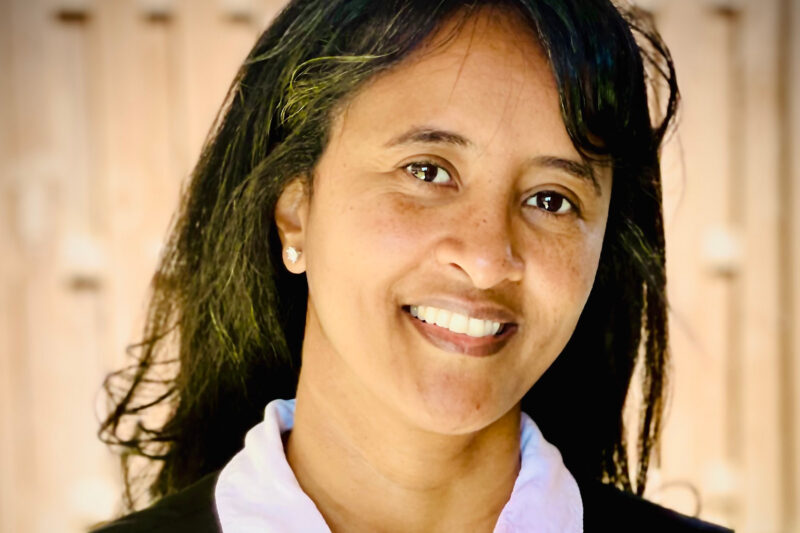Posted on August 9th, 2023 in Program Updates
The rapid growth of Senegal’s dairy sector has outpaced the implementation of food safety practices and policies to reduce the risk of foodborne disease from the consumption of raw and fermented milk. Recent outreach by a project funded by the FSIL has equipped partners at the Food Technology Institute (ITA) and the Senegalese Institute of Agricultural Research (ISRA) with knowledge and tools to detect and identify foodborne pathogens in the domestic milk supply.
“To date, Senegal’s milk production and processing industries have not yet been thoroughly studied beyond a literature review and a handful of student theses,” said Woubit Abebe, professor and director of the Center for Food Animal Health, Food Safety and Food Defense in the Department of Pathobiology at Tuskegee University and co-principal investigator (PI) of the FSIL dairy safety project. “Our partners in Senegal will be identifying the issues and pathogens relevant to the sector that deserve a closer look.”
Continue reading on Agrilinks
Posted on July 19th, 2023 in Program Updates
Food safety research often focuses on the supply side — production and processing — and identifying ways to reduce, manage and mitigate contaminants and foodborne pathogens. However, consumers are important actors who can drive positive change in market systems through their demand for safe, nutritious foods. Their purchasing decisions can create demand, impact pricing and spur the supply side to offer value-added products with sustainable production practices, nutrient enrichment or higher levels of food safety. Even with limited budgets, consumers in low- and middle-income countries balance priorities such as food type, quantity and quality, including food safety. Understanding and quantifying consumer demand for food safety can provide incentives to producers and to make informed decisions on market development of safer food products.
Continue reading on Agrilinks
Posted on June 20th, 2023 in Program Updates
Olufemi Aluko vividly remembers the day his father took him to visit their local hospital in Nigeria. As a young boy still in primary school, he initially wondered why, since he neither felt sick nor had a doctor’s appointment. However, Olufemi soon realized that his father, a schoolteacher, wanted him to witness firsthand the medical professionals hard at work, helping others in their community.
Continue reading on Agrilinks
Posted on June 19th, 2023 in Program Updates
Food safety priorities for fish consumed in Bangladesh — which boasts over 12 million fish farmers and robust domestic demand — should focus on reducing levels of formalin, heavy metals and antibiotics and other growth promoters, according to a new paper from researchers with the Feed the Future Innovation Lab for Food Safety.
Continue reading on Agrilinks
Posted on June 15th, 2023 in Program Updates
Earlier in her career, Samina Luthfa resisted the idea of becoming a gender researcher. Her interests as a political sociologist in Bangladesh ranged from the environmental justice movement to media — which, like most issues, can certainly be viewed through a gender lens. But she refused to be pigeonholed and never envisioned herself working as a gender expert.
Continue reading on Agrilinks
Posted on June 8th, 2023 in Program Updates
Foodborne pathogens, such as E. coli and Salmonella, are a significant source of intestinal illness in Cambodia. Identifying where they enter the vegetable supply chain — on farms, during transport, at distribution centers or in markets — is key information for developing strategies to strengthen food safety. A recent training has equipped Cambodian researchers at three institutions in a cutting-edge genomic technique to bolster pathogen tracking and reduce foodborne illness.
Continue reading on Agrilinks
Posted on June 6th, 2023 in Program Updates
For researchers in global development, engaging with stakeholders is essential. Our projects alone cannot solve large-scale problems like food security, malnutrition and food safety. For research to influence the food system, farmers, private companies and governments must buy into the new concepts and data arising from our research and translate them into practice and policy.
Continue Reading on Agrilinks
Posted on May 2nd, 2023 in Program Updates
Dairy products are an important source of nutrition in Senegal, but preventing foodborne illness in local supply chains is challenging to maintain across the system of small farms, aggregation sites and artisanal processing facilities. Two papers published by researchers working with the Feed the Future Innovation Lab for Food Safety (FSIL) highlight the challenges and potential solutions to increasing the food safety of milk production and processing in Senegal.
Continue reading on Agrilinks
Posted on March 20th, 2023 in Program Updates
Small-scale poultry farming is a major source of income for many rural households in Kenya and contributes to household food security and nutrition. However, preventing transmission of foodborne pathogens such as Salmonella and Campylobacter is a persistent challenge in poultry production systems around the world. Strengthening food safety requires not only the adoption of safer handling practices but also aligning those interventions with gender roles, responsibilities and risks. A new study highlights the significant role played by women and youth in small-scale poultry production in Kenya and identifies key activities to increase their success in reducing foodborne illness.
Continue reading on Agrilinks
Posted on March 13th, 2023 in Program Updates
Growing up in Ethiopia, Woubit Abebe (formerly Abdela) had always been a star student and, as a result, found herself with several possible career paths. She had only one requirement for her future job: She would apply her knowledge to help others in whatever way she could.
Continue reading on Agrilinks











